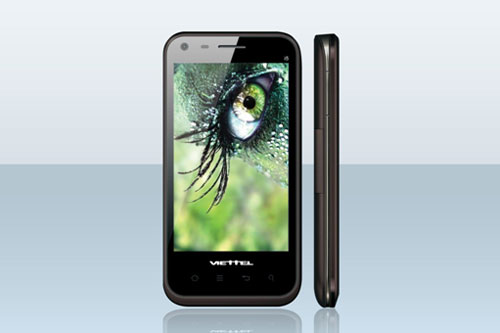Authorities put the phone down on Viettel’s appeal for hi-tech incentives

The Ministry of Finance (MoF) last week sent a document to Viettel, saying that the group was not entitled to receive the same tax preferences as Samsung Electronics Viet Nam (SEV) of South Korea.
Pursuant to Article12 of Government Decree 87/2010/ND-CP detailing import duties, the MoF said mobile phone production and assembly are not included in the list of products enjoying import tax incentives.
If Viettel carried out a project on producing and assembling mobile phones in poor areas, they would receive a five-year tax exemption for components and parts not produced in Vietnam, according to the MoF.
For SEV’s case, the ministry explained that the company received tax preferences because it was recognised as a high-tech export processing enterprise by the government.
For Viettel’s proposal on favourable rates for corporate income tax (CIT), the MoF said that Law on CIT which takes effect from January 1, 2014, regulates conditions for an enterprise to enjoy a preferential tax of 10 per cent. Therefore, the ministry asked for Viettel to apply if the group meets the conditions for tax incentives.
In an official document sent to the prime minister in August, Viettel proposed an import duty exemption for five years from 2013 on its entire materials, accessories and auxiliaries, imports serving research, design, assembly and manufacture of handsets, irrespective of the fact they could be made in Vietnam or not, like SEV’s cases.
The group also requested a preferential 10 per cent CIT for the income derived from selling handsets made or assembled by Viettel for the domestic market.
The proposal calls for impartial treatment towards domestic and foreign businesses to spur Vietnam’s handset manufacturing industry.
According to a Viettel source, despite reaping initial benefits from telecom equipment manufacturing to feed the domestic market (like the launch of the V1000 3G USB or V6206 handsets), the group has still grappled with numerous hardships.
For instance, Viettel bore high tariffs when importing materials and components which could not be made in Vietnam.
“Most components and devices for mobile manufacturing in Vietnam must be imported with high import duties. This makes local products more costly than similar whole-form imported items which are tax free,” said Viettel group’s general director Hoang Anh Xuan.
The import duty of handset batteries is set at 20 per cent, vibration motors 25 per cent and of micros at 15 per cent, for instance.
Top global handset manufacturer South Korea’s Samsung has built assembly facilities in Vietnam with committed investment capital reaching several billion US dollars.
Samsung has enjoyed generous incentives that local firms producing the same items have not been given.
For instance, Samsung Vietnam Electronics has enjoyed tax free duties when importing materials and accessories for handset manufacturing in Vietnam for five years. The company even became an export processing zone business, enjoying bigger incentives, from September 2012.
What the stars mean:
★ Poor ★ ★ Promising ★★★ Good ★★★★ Very good ★★★★★ Exceptional
Latest News
More News
- The generics industry: unlocking new growth drivers (February 04, 2026 | 17:39)
- Vietnam ready to increase purchases of US goods (February 04, 2026 | 15:55)
- Steel industry faces challenges in 2026 (February 03, 2026 | 17:20)
- State corporations poised to drive 2026 growth (February 03, 2026 | 13:58)
- Why high-tech talent will define Vietnam’s growth (February 02, 2026 | 10:47)
- FMCG resilience amid varying storms (February 02, 2026 | 10:00)
- Customs reforms strengthen business confidence, support trade growth (February 01, 2026 | 08:20)
- Vietnam and US to launch sixth trade negotiation round (January 30, 2026 | 15:19)
- Digital publishing emerges as key growth driver in Vietnam (January 30, 2026 | 10:59)
- EVN signs key contract for Tri An hydropower expansion (January 30, 2026 | 10:57)
















 Mobile Version
Mobile Version